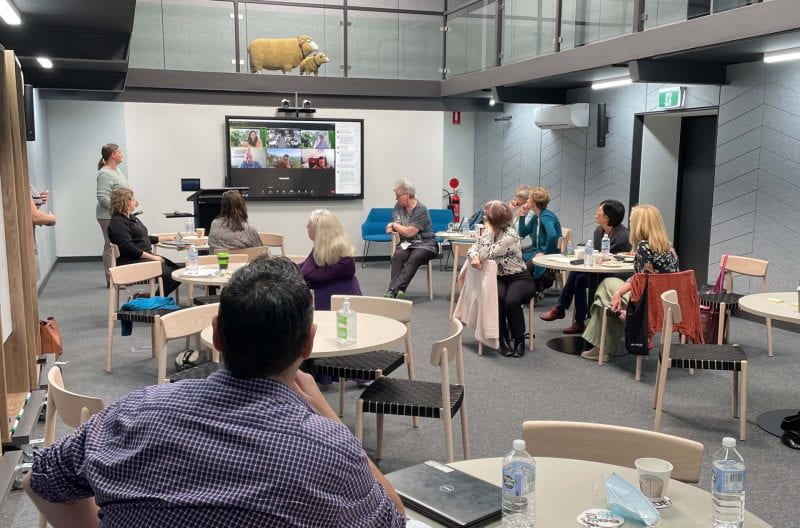Redesigning business processes and the ways that we work can be a challenge – processes can be complex, involving many different staff and systems, and practices can often vary across different areas of the university. Making changes can be difficult and knowing where to start when things aren’t working can be hard. The Digital Education (DigEd) portfolio has been drawing on the affordances of our integrated teams and our design expertise following Time for Change to lead the redesign of key business practices to co-create more efficient, consistent and sustainable ways of working. Recently DigEd has partnered with the Integrated Services team and an external business analyst to launch a project focusing on Special Assessment (provisions to support students with extenuating circumstances that impact assessment) at UNE.
Special Assessment provisions were identified as a priority due to surging numbers of applications in response to world events over the last two years – existing processes were manual and inefficient and significant issues with workload, turnaround time and inconsistent practices emerged as demand increased. The project takes a two-pronged approach to addressing this – through the design of a technical solution for managing applications, and through redesigning the business process for decision-making.
Earlier this week DigEd and Integrated Services hosted the first major milestone in the business process workstream of the project – a co-design workshop bringing stakeholders across the university together to begin collaboratively working towards developing new procedures and practices.

Close to 30 key academic and professional stakeholders representing the schools and divisions gathered both face to face and online in NOVA for a co-design workshop. Led by Sarah Thorneycroft (Program Director, Digital Education), the group worked through a series of activities underpinned by a hybrid design methodology to develop a strong, shared understanding of principles, goals and outcomes for Special Assessment. The group then developed an agreed way forwards for establishing guidelines and decision-making practices that align to achieve these outcomes, alongside identifying opportunities for team-based ways of working, communication strategies and integration of data insights.
Aside from achieving outcomes for the project, the workshop also laid the foundation for the Design Innovation Hub – a mechanism for groups to come together and collaborate using hybrid design methodologies to design new approaches and solve problems. The experiential feedback from participants was very positive, and the co-design model will be iterated to underpin the implementation of the Hub.
The outcomes from the workshop will now feed into a formal proposal developed by the core project team that will be tabled for consultation with key groups. For more information on the project or on co-design approaches, contact Sarah Thorneycroft.
